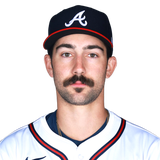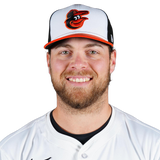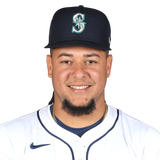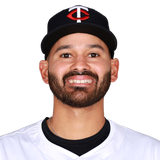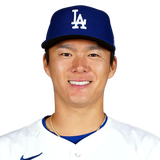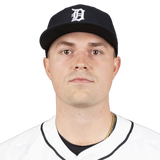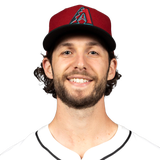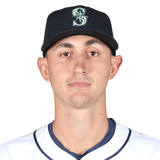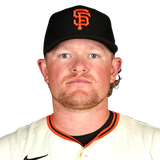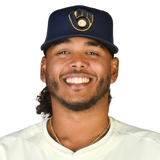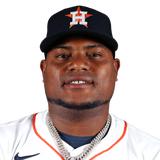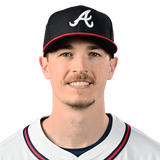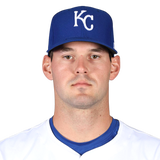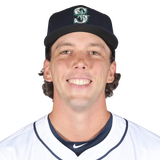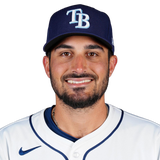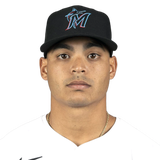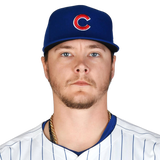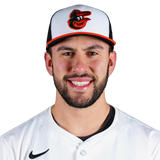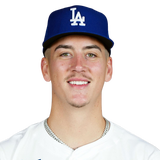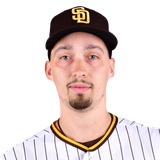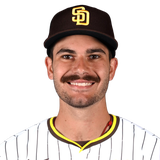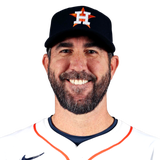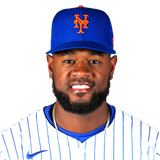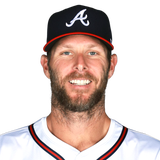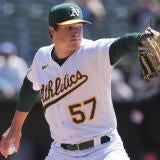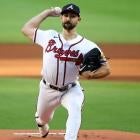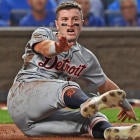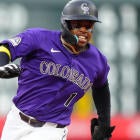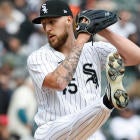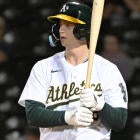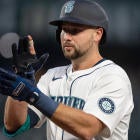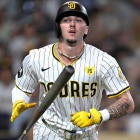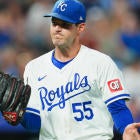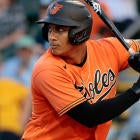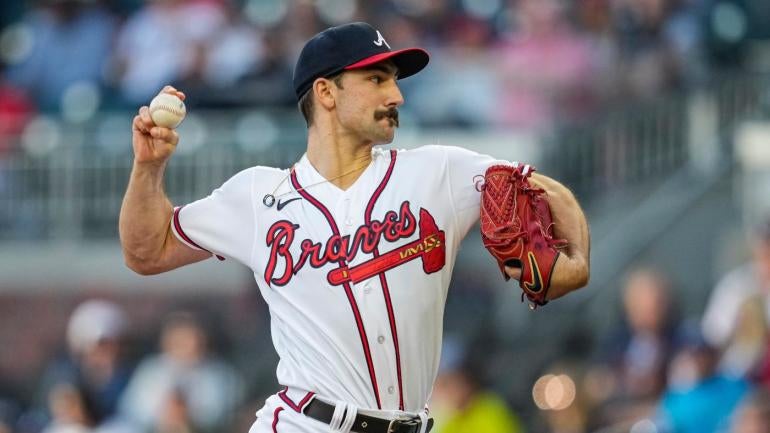
You should think about starting pitchers in Fantasy Baseball in much the same way you think about running backs in Fantasy Football. They are often the most valuable players in the game, but they are also some of the most difficult to predict. They suffer injuries at much higher rates than the general population of the sport, their success is highly team dependent, and there are always seemingly fewer of them than you need at any given time.
The concept of the "RB Dead Zone" has become widely accepted in Fantasy Football, and we should apply similar principles here. Because, as with running backs, there are a handful of starters who have proven they can not only pitch like an ace but also provide ace workloads consistently, and those are the guys who are worth early-round picks every year. They tend to provide the best return on investment, and tend to make the biggest difference in terms of winning Fantasy leagues.
- Position Strategies: C | 1B | 2B | 3B | SS | OF | SP | RP
- Position Previews: C | 1B | 2B | 3B | SS | OF | SP | RP
- Position Tiers: C | 1B | 2B | 3B | SS | OF | SP | RP
After that? Well, that's where the idea of the dead zone comes in. Pitchers who look like they could be aces if a few things break right – they take a step forward, or they stay healthy, or they fix whatever flaw it is that's holding them back – tend to get pushed up draft boards as Fantasy players convince themselves they have to pay a premium to avoid getting stuck with the dregs of the position. But that doesn't tend to work out as well as you would think or hope.
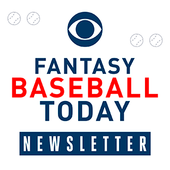
Fantasy Baseball Today Newsletter
Your Cheat Code To Fantasy Baseball
You're destined to gain an edge over your friends with advice from the award-winning FBT crew.
Thanks for signing up!
Keep an eye on your inbox.
Sorry!
There was an error processing your subscription.
Last season, there were three starting pitchers drafted in the first two rounds of NFBC leagues, on average, and all three of them provided at least $11 in value, per FanGraphs' Auction Calculator. Then, there were three drafted in the third round on average, and two of them provided negative value.
Here's the average return provided by pitchers in each round of ADP in 2023:
- First two rounds: $19.01 (Three players)
- Third round: $0.29 (Three players)
- Fourth round: $7.61 (Four players)
- Fifth round: $-6.41 (Four players)
- Sixth round: $-7.03 (Six players)
- Seventh round: $2.42 (Three players)
- Eighth round: $5.32 (One player)
- Ninth round: $2.32 (Two players)
- 10th round: $5.76 (Four players)
- 11th round: $-5.22 (Five players)
- 12th round: $-19.17 (Two players)
- 13th round: $-7.89 (Five players)
- 14th round: $0.53 (Five players)
Now, in fairness, it was kind of a disastrous season for higher end pitchers, as the offensive landscape around baseball shifted in ways that seemed to make every pitcher even more unpredictable than usual. Plus, we're dealing with small sample sizes across the board, which is why your takeaway here shouldn't be something like, "Well, obviously, I'll just skip the fifth and sixth-round pitchers and focus on the eighth-rounders."
The specifics of last year's results are less important than the general trend, which is one we've seen for a long time in Fantasy baseball, which is that, once you get beyond the true, proven aces, investing more in a starting pitcher doesn't really guarantee much of anything. There will always be examples that run counter to this, because we're dealing with samples of a few dozen players being drafted in this range in any given year, but the larger trends have held surprisingly consistent when I've done this type of analysis in the past.
The way I've put this data into action in the past is pretty straightforward: I try to invest a few early picks in guys who have a proven track record of throwing 180-plus innings with good peripherals – either your aces like Gerrit Cole and Spencer Strider, or else the Framber Valdez and Aaron Nola types – and then I try to avoid that middle class at the position. There will always be exceptions, but generally speaking, I'm going to invest two of my first four of five picks in starting pitchers who fit that profile, and then I'm steering clear of the position for the next 8-10 rounds.
I want those two innings eaters at the top to provide me a solid, dependable base of strikeouts and ratios, and then I'm looking for upside arms in the double-digit rounds to complement them. Like I said, there will be exceptions – I like drafting Eury Perez if he falls outside of the first 75 picks, for instance – but the general shape has held true for years, and it has led to some pretty great pitching staffs over the past few years.
Of course, it's not the only strategy that can work, and it's certainly not guaranteed to work, either. But it's the one I thing the data suggests will serve you the best when you're picking your pitchers. Now, you just have to pick the right guys. How hard can that be?

Fantasy Baseball Today Newsletter
Your Cheat Code To Fantasy Baseball
You're destined to gain an edge over your friends with advice from the award-winning FBT crew.
Thanks for signing up!
Keep an eye on your inbox.
Sorry!
There was an error processing your subscription.
- Position Strategies: C | 1B | 2B | 3B | SS | OF | SP | RP
- Position Previews: C | 1B | 2B | 3B | SS | OF | SP | RP
- Position Tiers: C | 1B | 2B | 3B | SS | OF | SP | RP
By reaching the 200-inning mark (inlcuding playoffs), Strider answered the biggest question about his ace bona fides last season. There are still some questions about his inflated ERA, especially down the stretch, as he had a 4.73 ERA over his final seven starts, including the playoffs, at a point when he was throwing more innings than he ever had. Still, Strider is the premiere strikeout pitcher in the game right now, he plays for a team that will get him a ton of wins, and his ERA estimators suggest there was some bad luck to his 3.86 ERA. It's not a flawless profile, but he's dominant enough to justify a late first-round pick.
| ||||||||||||||||||||
Personally, I'm going with Burnes as my SP2, and now that Cole is out of the picture to open the season, Burnes belongs in a tier of his own at the position. Burnes took a bit of a step back in 2023, but he regained some lost velocity as the season went on and got his strikeout rate back up to 28.6% after the All-Star break. His move from Milwaukee to Baltimore comes with a significant park shift – Orioles pitchers have a 3.77 ERA at home since they moved the fences back, compared to a 4.11 mark on the road – and an improved supporting cast to boot. He should be the AL Cy Young favorite.
| ||||||||||||||||||||
Wheeler has missed roughly 10 starts total over his past six seasons, a remarkable run of health for someone who couldn't stay on the mound early in his career. He's an annual Cy Young contender who should post excellent ratios, 200-plus strikeouts, and seems like a good bet to improve on his 3.61 ERA in 2023 – it was his worst mark since 2019, and his ERA estimators were pretty much all a half-run or so better. There's a bit of a log jam after the top two, but Wheeler is a viable option as the third SP off the board.
| ||||||||||||||||||||
Despite moving to one of the best pitcher's parks in the league, Castillo actually had his highest HR/9 since 2018, which is just about the only red flag in his profile. He's durable, he gets a lot of strikeouts, and he pitches for a good team. If there's any regression in that home run rate in 2024, that ERA could pretty easily dip under the 3.00 mark for just the second time in his career.
| ||||||||||||||||||||
Lopez has made every start over the past two seasons, answering questions about his ability to hold up over a full season after some shoulder issues early in his career. He threw a career-high in innings while adding 1.4 mph to his average fastball velocity, and he added sweeper that immediately became his best swing and miss pitch – though all of his pitches have the ability to garner plenty of whiffs. There's still some latent concern over his early-career shoulder issues, but Lopez sure looked like an ace last season, and seems like a good bet to best his 3.67 ERA from last season, too.
| ||||||||||||||||||||
Yamamoto opened the spring as the No. 12 in our SP ranks, and it took exactly one start for everyone to start moving him up. Yamamoto doesn't carry the same specific injury concerns as some of the other high-end pitchers here, but he's totally unproven at the MLB level. Of course, he signed a $300 million contract with one of the smartest organizations in the game after a three-year stretch where he posted a 1.42 ERA (less than half the league's combined 3.26 ERA in that stretch), so we have good reason to think Yamamoto is going to more than hold his own. There will be some growing pains – the ball they used in Japan is slightly different than the MLB ball, and he won't have much experience throwing every fifth day, the way he'll likely be expected to in MLB – but the various stuff-centric models view Yamamoto as one of the best pitchers in baseball already. You're paying for that kind of upside now.
| ||||||||||||||||||||
Skubal had Tommy John surgery before becoming a pro, and then underwent flexor tendon surgery in 2022, so there's plenty of injury risk here. But if what he showed last season was real, he's worth the risk and then some. Coming back from that surgery, Skubal saw a significant spike in velocity, and it allowed his entire profile to play up – to the point where the only pitcher in the entire league with a lower xERA was Orioles closer Felix Bautista. There is significant downside here, both performance and health based, but if Skubal throws 160 innings at anywhere close to last year's level, he's a top-12 starter.
| ||||||||||||||||||||
Gausman will rack up huge strikeout numbers and he does a good job limiting free passes, but he also generally lives south of the 190-inning mark even before the shoulder fatigue issue that has him in doubt for Opening Day. Add in that he struggles enough to limit hard contact that the occasional blowup is often inevitable, and you can see why he's sliding. He's a bit behind the other aces in WHIP (1.24, 1.18 the past two seasons) and might struggle to win 15 games in Toronto, but there's no reason to think he won't remain one of the best pitchers in Fantasy overall if he overcomes this shoulder issue.
| ||||||||||||||||||||
Gallen has made every start over the past couple of seasons since dealing with some elbow issues in 2021, and he threw a whopping 243.1 innings last season, including the playoffs. That's one way to answer questions about your ability to hold up to an ace workload, though it also brings new questions about how Gallen will respond to that kind of workload the following season. It kind of feels like a, "Heads I win, tails you lose," scenario for Gallen, but when you're talking about these kinds of high-end pitchers, you're always going to be nitpicking to find differences between them. Gallen has few weaknesses in his game, and it's possible those workload concerns are overblown.
| ||||||||||||||||||||
Glasnow threw 120 innings last season, a number 101 different pitchers bested last season in the majors. It's also a number Glasnow has never topped at the MLB level. Glasnow might be the ultimate risk-reward proposition among pitchers, because if he manages to throw 160 innings, he's probably a top-12 pitcher too – since 2019, Glasnow has a 3.03 ERA, 1.01 WHIP, and a massive 35% strikeout rate. The problem, of course, is that even including the minors, Glasnow has never thrown more than 155.1 innings in season, and he plays for a Dodgers team whose only concern is getting to October healthy. If Glasnow throws 50 innings but he's 100% ready for the playoffs, the Dodgers probably view it as a successful season, but he would obviously be a wasted pick at his current price.
| ||||||||||||||||||||
The nice thing about Kirby is, he's shown a nice high floor, with a 3.39 and 3.35 ERA in each of his first two MLB seasons while making every start over the past two seasons without injury concerns. The question here is whether he has enough of a ceiling to justify what will likely be a top-10 SP price in most leagues. He's ranked a bit lower in the CBS Fantasy consensus, but there's considerable disagreement even within that consensus: Frank Stampfl has Kirby as his SP9, I've got him at SP12, and Scott White has him down at SP18. The disagreement mostly comes down to strikeouts, I think; Kirby started throwing a pretty good splitter last season, and saw a spike in his strikeout rate in the second half, though he couldn't sustain it for more than just a few starts at a time. Again, there's a seemingly high floor here that makes him a decent bet, but I'm just not convinced Kirby has the upside necessary to justify his price.
| ||||||||||||||||||||
Over the past three seasons, Webb has made 91 starts and thrown 556.2 innings with a 3.07 ERA and 1.112 WHIP. You probably won't get elite strikeouts from him, but he got close to 200 last season thanks to big innings totals. Webb has flashed some strikeout upside in the past, and if he can get back to the 9.6 K/9 level he showed in 2021, there might be a potential ace outcome here. The likeliest outcome is he continues to roll along, posting terrific ratios and big volume, and being underrated for Fantasy as a result.
| ||||||||||||||||||||
Webb, Valdez, and Nola are all kind of different variations on the same theme, with each successive one providing a bit more strikeout upside, but also less predictability in their ERAs. In Nola's case, he's been above 4.45 in two of his past three seasons, with a 3.25 mark sandwiched between them. The underlying numbers for Nola's two worse seasons have still been pretty good, though there was some slippage there in 2023 that suggests it might not have been all bad luck, mostly because Nola's strikeout rate dropped below 29% for the first time since 2019. If he can't reverse that slide, the ERA may stay inflated, but I'd bet on something closer to the mid-3.00s range, with a very good WHIP and 200-plus strikeouts. You'd prefer a bit more predictability from a "safe" option like Nola, but there's still top-five upside here.
| ||||||||||||||||||||
Over the course of his career, Peralta has gone on the IL four different times, three of which were for shoulder injuries, so that's where the red flags start. When he's on the mound, Peralta tends to post useful, but not elite ratios, and tons of strikeouts – 11.4 per nine innings over the past three seasons. He rarely goes deep into games (two starts of more than six innings in 2024), which probably makes him a more useful option in Rotisserie leagues than H2H points. This is a steep price to pay, but when you look at the risk-reward profiles of the guys going ahead of him, you can see how he fits here.
| ||||||||||||||||||||
Valdez is kind of like Webb with a few more strikeouts, and a bit more volatility in ERA and WHIP. He's going to go deep into starts, he's going to win a bunch of games in Houston, and he's going to get close to 200 strikeouts, even if he takes a different path to get there than most aces. If you want stability at a position that doesn't provide much of it, Valdez is your guy.
| ||||||||||||||||||||
Fried must feel a bit lonely, because he really belongs in that Webb-Valdez-Nola tier, if not for an injury-plagued 2023 that saw him make just 14 starts. He missed a bit of time with hamstring and blister injuries, which aren't too concerning, but the three months he missed with a strained left forearm sure are – forearm injuries are often (though certainly not always!) a precursor to elbow issues, after all. The good news is, Fried came back and looked like himself, sporting a 2.79 ERA over his final nine starts while getting over the 100-pitch mark three times without issue. There's certainly some risk here with Fried, but it's worth noting that he had never missed a start in the majors prior to that with an arm injury. If it was just a one-time thing, Fried is probably going to finish as a top-12 starter with that Braves lineup backing him up.
| ||||||||||||||||||||
Ragans saw a huge jump in his velocity last offseason, but we didn't really see a change in his results until a trade to Kansas City allowed him an opportunity to pitch in the rotation full time. From that point on, Ragans struck out 31% of opposing hitters, sporting a 2.64 ERA (with ERA estimators backing it up!) and 1.07 WHIP. There were some bumps in the road along the way, with his walk rate spiking toward the end of the season, leading to some questions about whether he'll be able to sustain that level of success for a full season. But Ragans has had a pretty clean bill of health in recent seasons and certainly looked like an ace starter when he got the chance. Skepticism is warranted, given the small sample, but if he's still averaging 97 with his fastball this spring, it's going to be tough to justify fading him.
| ||||||||||||||||||||
There really isn't very much separating Gilbert from Kirby, his teammate. Gilbert isn't quite the control artist Kirby is, but he's been a bit of a better strikeout pitcher, thanks to a deeper arsenal of swing-and-miss pitches. Most of the ERA estimators suggest there isn't much difference between Kirby and Gilbert, and I'll admit, I find the gap in their prices right now kind of hard to make sense of. I'll just take the cheaper one, thank you.
| ||||||||||||||||||||
Given the deference the Fantasy Baseball community tends to show to every pitcher the Rays get their hands on, I'm genuinely surprised that Eflin remains such a good value right now. He was the No. 6 SP in 2023, but as of early February, he's SP27 in NFBC ADP. There's an injury history to be concerned about here, though I'll note that he hasn't missed time in the majors with an arm injury since 2017 and got through 31 starts last season without issue. Eflin saw a big jump in his strikeout rate in 2023 while maintaining his elite control, and most of the ERA estimators back up his 3.50 mark. Some skepticism about the jump in strikeout rate isn't unreasonable, especially without any obvious swing-and-miss pitches to lean heavily on. It's a "sum of the whole is better than the parts" profile, and there are reasons to be skeptical, but I still like Eflin more than both his price and the consensus ranking.
| ||||||||||||||||||||
Luzardo's 178.2 innings were the most of his career in a season by more than 50, so that's where every conversation about him has to start. That he did that after missing a bunch of time in 2022 with a forearm injury is a good sign, and that he pitched into October for the first time in his career without falling apart is another one. However, there were definitely some bumps in the road along the way, including a 5.92 ERA in August – though he followed that up with a 3.38 mark in September, which you have to feel pretty good about. When he's on the mound, Luzardo seems like a safe bet for a bunch of strikeouts and very good ratios, but the injury history is enough of a red flag to avoid paying the sticker price if you can't stomach the risk.
| ||||||||||||||||||||
Attrition has pushed Steele up into the top-24 of our rankings, but it's fair to ask if he should have always been there. Based on what he accomplished last season, there really isn't any kind of argument to be made against it, but Steele doesn't get the benefit of the doubt he likely deserves because of his unorthodox approach. He's a soft tossing lefty who pretty much only throws two pitches, which is the kind of profile that would have seen him ticketed for LOOGY duty in the past, and it seems we're still skeptical of that kind of skill set. We might be right to be, but if Steele
| ||||||||||||||||||||
As Eury Perez's elbow injury reminded us, there's no such thing as a "safe" young pitcher, and I won't jinx Rodriguez with that label. However, Rodriguez doesn't really carry any workload concerns heading into his second season, and he's coming off a 13-start stretch after coming back from the minors where he had a 2.58 ERA (2.76 FIP!) and 73 strikeouts in 76.2 innings of work. He was still tinkering with his arsenal last year, and if he can find a consistent putaway pitch to boost those strikeout numbers, there's pretty obvious top-12 upside here.
| ||||||||||||||||||||
Miller has a whole arsenal full of swing-and-miss pitches, which is why it's so baffling that he struck out less than a batter per inning as a rookie. In spite of that, he had a pretty terrific rookie season and should only grow from there. There's risk with any young pitcher, and Miller has never thrown more than 138.2 innings in a season, so he'll likely be in uncharted territory sometime in August. That's scary. But so is Miller's upside if he can tap into it.
| ||||||||||||||||||||
Snell must feel lonely, because he probably belongs with the Glasnow/Skubal types. Okay, his track record is a bit longer than both, and it's a lot more volatile, with ERAs over 4.20 in two of his past five seasons, and only one season with a WHIP below 1.20 in that span. The one predictable thing about Snell is that he's going to be one of the best per-inning strikeout pitchers in the game; beyond that, all bets are off. There's been almost no start-to-start, week-to-week, month-to-month, or season-to-season consistency for Snell – remember, he had a 5.40 as late as May 19 last season before going on to win the Cy Young. Snell remains unsigned with a week left until the start of the season, and his landing spot could change how the Fantasy community views him, but I'll just say this: I'm not going to be the one who drafts him coming off a Cy Young. I'll wait until May to try to trade for him when the person who drafted him is thinking about dropping him. It seems to happen every season with Snell anyway.
| ||||||||||||||||||||
Miller's fastball is so good that it was all he needed at first, as he came out of the gates allowing four earned runs in his first five starts while throwing his fastball 70% of the time. It proved to be an unsustainable approach, and Miller tried to adjust from there, to middling results. His slider is a tough pitch to get on top of, but it hasn't proven to be a good swing-and-miss pitch; his sweeper looks the part (and rates out well by various Stuff metrics), but he had the third-lowest whiff rate of any sweeper in baseball because he telegraphs the pitch when he releases it. Miller has a tremendous base to build on with that fastball, which comes in in the mid-to-high 90s at an arm angle that makes it tough to pick up, but the rest of his arsenal remains a significant work in progress. If he can figure out how to disguise his sweeper, or maybe develop a changeup or splitter – lefties posted a .917 OPS against him last season – there could be room for rapid improvement.
| ||||||||||||||||||||
Cease might just be the right-handed Blake Snell, albeit with a much better track record of staying on the mound. His stuff is wicked, but Cease too often pitches like he has no idea where any of his pitches are going. It leads to meltdowns that just shouldn't happen with a pitcher of his skill level. 2023 was probably rock bottom for this kind of profile, and if the Snell experience has taught us anything, it's that you probably want to buy this profile coming off the worst-case scenario season. He might be a major source of heartburn for you this summer, but Cease is a relatively cheap source of 220-ish strikeouts, and a trade to a better home park and team context should only help. I'm buying.
| ||||||||||||||||||||
Verlander is 40 and saw a massive drop in his strikeout rate for the second year in a row, so I can't blame anyone who writes him off at this point. On the other hand, he still had a very good 3.22 ERA and 1.13 WHIP despite the dropoff, and the various stuff models do think he rediscovered some of his old form after rejoining the Astros at the break. Things could go sideways, obviously, and I'm not sure Verlander still has the top-five upside we've seen even in his late-30s, but he also still looks like a very, very good pitcher who nobody really wants to rank that way -- in part because of a minor shoulder injury that has the start of his season set to be delayed.
| ||||||||||||||||||||
Severino was pretty much hopeless last season. He managed to stay mostly healthy after coming back from a lat strain to open the season, but the Yankees might have wished he hadn't, because he rarely gave them a chance to win when he pitched. The weird thing was, there wasn't an obvious physical explanation for his struggles – his velocity and movement profiles were similar enough to 2022, when he was pretty much as good as ever. That's not to say Severino just got unlucky last season – he wasn't fooling anyone, and he was getting crushed as a result. He earned every bit of that 6.65 ERA. But it does suggest the possibility of an explanation for his struggles that goes beyond the physical. The mental side of the game is awfully tough to prognosticate, obviously, but there is one potential explanation for Severino's struggles: What if he was tipping pitches? A piece from The Athletic in early January cited at least one scout who believed Severino was doing exactly that. The Yankees weren't able to fix that issue, but if the Mets can, it could help Severino get back on track. I'm not necessarily expecting that, but just like it made sense for the Mets to make a one-year bet on Severino at $13 million, it makes sense to throw a late-round pick at him, just to see if he can rediscover his former form.
| ||||||||||||||||||||
Since coming back from Tommy John surgery in 2021, Sale has made 31 starts with a 3.93 ERA, 1.185 WHIP, and 182 strikeouts in 151 innings of work. He's done that despite, you know, coming back from Tommy John surgery, while also dealing with a number of other maladies. It's probably not reasonable to expect the now 35-year-old to be healthier moving forward than he has been, but he is at least currently healthy; he dealt with a fractured rib cage during the spring of 2022 and then was recovering from a fractured wrist last spring. His velocity is up a couple of ticks between this spring and last, and he's struck out nine batters in 4.2 innings through his first two spring outings. None of this guarantees that Sale will remain healthy, let alone effective, in 2024. But the vibes here are better than they've been in literally years, and with the Braves offense backing him up, a return to Fantasy prominence seems pretty reasonable to expect.
| ||||||||||||||||||||
Kirby followed up a strong rookie season with another very strong season, but I'm not sure what he did in 2023 justifies a top-10 SP price, which is where he's going off the board. Kirby was the No. 13 starting pitcher last season, and there's reason to believe he might have gotten a bit lucky with that result: His 3.90 xERA is more than a half-run higher than his actual mark. Kirby is a very good pitcher, but I think he's pretty clearly somewhere south of an ace unless he figures out how to generate more strikeouts. He showed signs of that in the second half last season … kind of. His strikeout rate jumped from 20.8% in the first half to 25.2% after the All-Star break, but it was mostly concentrated in a three-start stretch where he struck out 26 in 16 innings at the end of July; from Aug. 1 through the end of the season, his 21.9% strikeout rate was actually lower than his overall mark for the season. Kirby is fine, but he's going a few rounds ahead of Logan Webb, who had a better version of Kirby's 2023 season and showed the kind of strikeout upside in 2021 that Kirby has never shown. I can't justify this price.
| ||||||||||||||||||||
Starting Pitcher Top Prospects
Head here to read Scott White's full top-100 prospects list.
1. Yoshinobu Yamamoto, SP, Dodgers
Age (on opening day): 25
Where he played in 2023: Japan
NPB stats: 17-6, 1.16 ERA, 0.86 WHIP, 171 IP, 28 BB, 176 K
Between his 1.16 ERA last season, his three-year run as the best pitcher Japan, and the scouting reports that read like a greatest hits compilation for every other pitcher in the game (Spencer Strider's fastball, Kevin Gausman's splitter, George Kirby's command, etc.), you can understand why the Dodgers gave Yamamoto the biggest contract for any pitcher in history. Even if the transition isn't totally seamless this year, he has his whole career ahead of him at age 25.
Scott's 2024 Fantasy impact: pencil him in
2. Paul Skenes, SP, Pirates
Age (on opening day): 21
Where he played in 2023: Rookie, Low-A, Double-A
Minor-league stats: 6 2/3 IP, 5 H, 4 ER, 2 BB, 10 K
Though you'll see some hand-wringing over the shape of Skenes' fastball within analyst circles, its pure velocity should make it no worse than respectable -- and likely better than that when offset by his wipeout slider. He's under more scrutiny as the No. 1 pick in a loaded 2023 draft class, but he dominated the college ranks and offers the ideal combination of ceiling and floor.
Scott's 2024 Fantasy impact: fighting this spring
3. Andrew Painter, SP, Phillies
Age (on opening day): 20
Where he played in 2023: did not play -- Tommy John surgery
2022 stats (minors): 6-2, 1.56 ERA, 0.89 WHIP, 103 2/3 IP, 25 BB, 155 K
Some are quick to bury a pitching prospect who undergoes Tommy John surgery, but Painter's talent is so off-the-charts spectacular that it's worth the wait and then some. His fastball is a one-of-a-kind offering that generates whiffs at the top of the zone, peaking at 101 mph with a shorter path to the plate because of his 6-foot-7 reach, and his command is almost unheard of for a pitcher his size.
Scott's 2024 Fantasy impact: don't count on it
4. Jackson Jobe, SP, Tigers
Age (on opening day): 21
Where he played in 2023: Rookie, Low-A, High-A, Double-A
Minor-league stats: 2-4, 2.81 ERA, 0.98 WHIP, 64 IP, 6 BB, 84 K
Renowned mostly for his 3,000-rpm slider, the third pick in the 2021 draft revealed another jaw-dropping characteristic in 2023: a 14-to-1 strikeout-to-walk ratio. Between that and Jobe's full arsenal of swing-and-miss offerings, an ace outcome is now in the offing, but that's only if he can achieve the necessary durability, being limited by back issues to 64 innings last season.
Scott's 2024 Fantasy impact: late-season look
5. Ricky Tiedemann, SP, Blue Jays
Age (on opening day): 21
Where he played in 2023: Rookie, Low-A, Double-A, Triple-A
Minor-league stats: 0-5, 3.68 ERA, 1.23 WHIP, 44 IP, 23 BB, 82 K
Last season brought some concerns to light for what was thought to be a rock solid pitching prospect, the most obvious being durability but the most serious being a incompatibility between Tiedemann's fastball and changeup -- two pitches whose wipeout characteristics require different release points, almost as if he's tipping his hand. Then again, he had 16.8 K/9.
Scott's 2024 Fantasy impact: midseason hopeful


